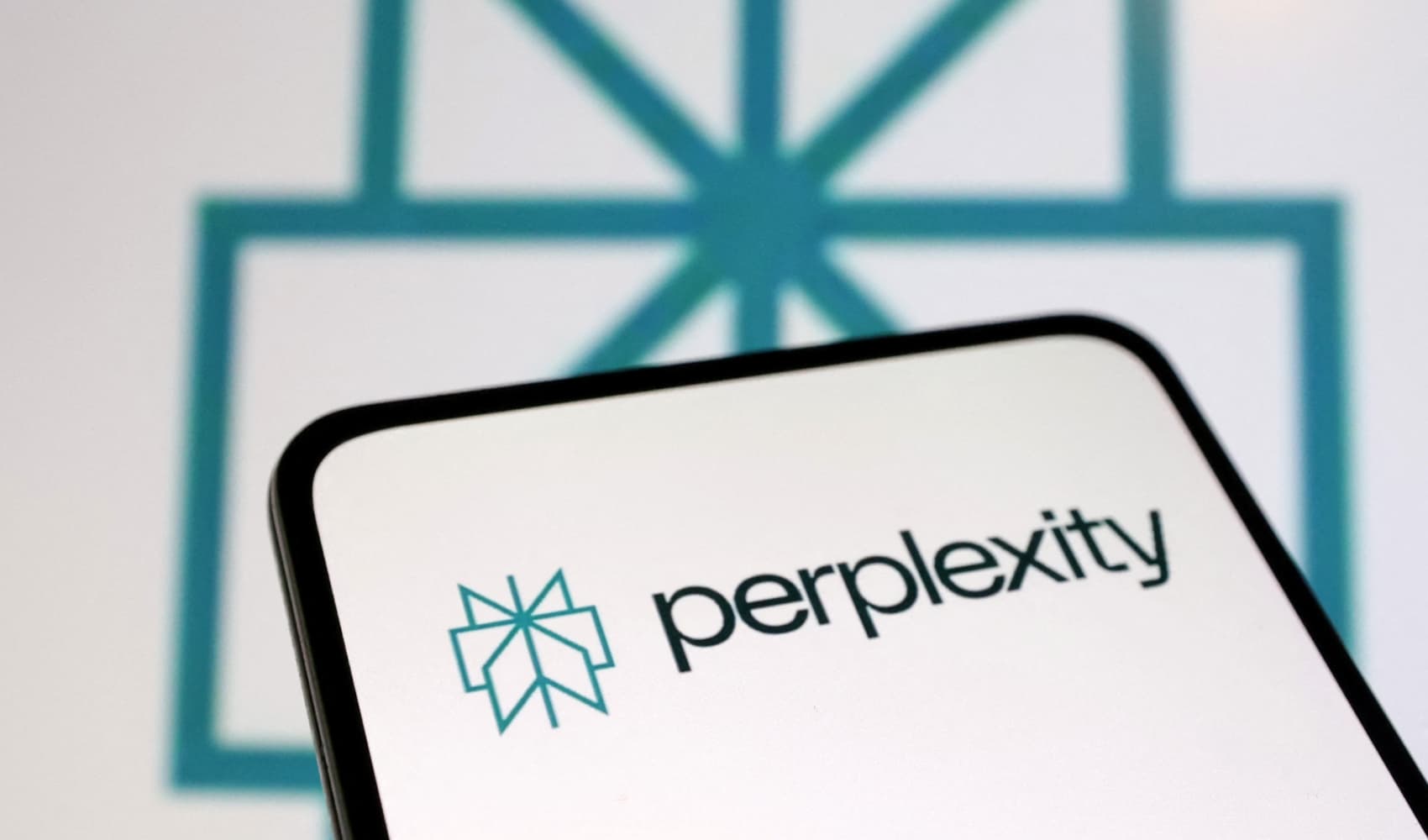Perplexity AI & Motorola: Smarter Smartphones are Here!
Perplexity AI Lands on Motorola: A Smarter Smartphone Experience?
Introduction: The AI-Powered Smartphone Race Heats Up
Hold onto your hats, folks, because the smartphone world is about to get a whole lot smarter! Remember when smartphones were just for calls and texts? Those days are long gone. Now, it's all about AI, and Perplexity AI is throwing its hat into the ring. Perplexity AI is partnering with Motorola to bring its powerful AI search engine directly to your mobile device. This is a big deal, and we're here to break it all down for you.
Perplexity Joins the Smartphone AI Arena
Perplexity AI’s move is a clear indication that the future of smartphones is inextricably linked with artificial intelligence. Think about it: Apple's Siri-ChatGPT integration set the stage, and now Perplexity is joining the party. But what does this mean for you, the average smartphone user?
The Motorola Partnership: A Strategic Alliance
On Thursday, Perplexity AI officially announced its groundbreaking partnership with Motorola. Motorola will be the first smartphone brand to integrate Perplexity’s AI search capabilities directly into its devices. This isn’t just some minor feature addition; it’s a core integration that will allow Motorola users to leverage Perplexity’s AI right from the start.
Moto AI: Reimagining the Smartphone Experience
Motorola is calling its AI-enhanced features "Moto AI." This suite of capabilities will now include Perplexity's search engine. Imagine being able to ask your phone complex questions and get concise, accurate answers instantly. No more endless scrolling through search results – Perplexity promises to deliver the information you need, when you need it.
Distribution, Not Direct Revenue: Perplexity's Long Game
According to Perplexity CEO Aravind Srinivas, this partnership is primarily focused on user acquisition. It’s a distribution play, meaning Perplexity is aiming to expand its user base rather than generate immediate revenue from Motorola directly. Think of it like giving away free samples at a grocery store – the goal is to get people hooked on the product, not to make a quick buck.
Why Motorola? A Smart Choice for Perplexity
Why did Perplexity choose Motorola as its first smartphone partner? Motorola has a rich history of innovation and a global presence. Plus, they're known for offering high-quality devices at competitive prices, making them accessible to a wide range of users. This aligns perfectly with Perplexity's goal of expanding its reach.
Beyond Search: What Else Can Perplexity Do?
Perplexity AI isn't just a search engine; it's a powerful AI tool that can do much more. It can summarize information, translate languages, write different kinds of creative content, and answer your questions in an informative way. This integration into Motorola phones unlocks a whole new level of potential.
Summarizing Complex Information
Tired of sifting through lengthy articles to find the information you need? Perplexity can summarize complex information into concise, easy-to-understand summaries.
Instant Language Translation
Traveling abroad or communicating with someone who speaks a different language? Perplexity can translate languages on the fly, making communication seamless.
Creative Content Generation
Need help writing an email, a blog post, or even a poem? Perplexity can generate creative content based on your prompts.
The Competitive Landscape: Perplexity vs. Google and Others
The AI search market is heating up, with established players like Google and Microsoft (with its Bing AI integration) vying for dominance. Perplexity is positioning itself as a challenger, offering a different approach to search that prioritizes accuracy and efficiency. Can they compete with the giants? That remains to be seen, but this partnership is a significant step in the right direction.
The Impact on the Smartphone Market
This partnership could have a ripple effect on the entire smartphone market. Other manufacturers may feel pressure to integrate similar AI capabilities into their devices. Ultimately, this could lead to a new generation of smarter, more intuitive smartphones that can better assist users in their daily lives.
User Privacy and Data Security: A Critical Consideration
With any AI integration, user privacy and data security are paramount. How will Perplexity and Motorola ensure that user data is protected? Transparency and clear privacy policies will be crucial to building trust and ensuring that users feel comfortable using these new AI features. What measures are being taken to keep your data safe?
The Future of AI in Mobile Devices
This partnership is just the beginning. As AI technology continues to evolve, we can expect to see even more sophisticated AI features integrated into mobile devices. Imagine a future where your phone can anticipate your needs before you even realize them, providing personalized recommendations and assistance throughout your day. The possibilities are endless!
The Razr Connection: Is a Smarter Razr on the Horizon?
Motorola is also known for its iconic Razr line of foldable smartphones. Could this partnership lead to a smarter, more AI-powered Razr in the future? Imagine a Razr that can seamlessly integrate with your work and personal life, providing intelligent assistance and personalized experiences. A futuristic Razr? Count us in.
The Value Proposition for Consumers: What's in it for you?
So, what's the big deal for you, the consumer? This partnership promises to deliver a faster, more efficient, and more personalized smartphone experience. Imagine being able to get answers to your questions instantly, without having to sift through endless search results. That's the power of Perplexity AI integrated into your Motorola phone.
Conclusion: A Bold Move in the AI-Driven Future
Perplexity AI's partnership with Motorola marks a significant step in the evolution of smartphones. By integrating its AI search engine directly into Motorola devices, Perplexity is challenging the status quo and pushing the boundaries of what's possible. This is a bold move that could reshape the smartphone market and deliver a smarter, more intuitive experience for users worldwide. Whether it will overtake Google and other search engines remains to be seen, but it is an innovative step to give people the ease they need.
Frequently Asked Questions
Here are some frequently asked questions about the Perplexity AI and Motorola partnership:
-
Q: What exactly does Perplexity AI do?
A: Perplexity AI is an AI-powered search engine that provides concise, accurate answers to your questions, along with citations for its sources. It's designed to be more efficient and less overwhelming than traditional search engines.
-
Q: Will this integration cost me extra money?
A: It's unlikely that Motorola will charge extra for the Perplexity AI integration. Given that Perplexity's goal is user acquisition, it would make sense for the feature to be included as part of the standard software package on Motorola phones.
-
Q: Which Motorola phones will get the Perplexity AI integration?
A: While the specific models haven't been announced, it's likely that the integration will be rolled out to a range of Motorola smartphones, including both flagship and mid-range devices.
-
Q: How does Perplexity AI protect my privacy?
A: Perplexity AI has privacy policies in place to protect user data. They'll likely be working closely with Motorola to ensure that the integration adheres to strict privacy standards. However, it's always a good idea to review the privacy policies of both companies.
-
Q: What are the advantages of using Perplexity AI over Google Search?
A: Perplexity AI aims to offer a more streamlined search experience. It summarizes information and provides citations, saving you time and effort compared to traditional search engines that often require you to sift through multiple links.




